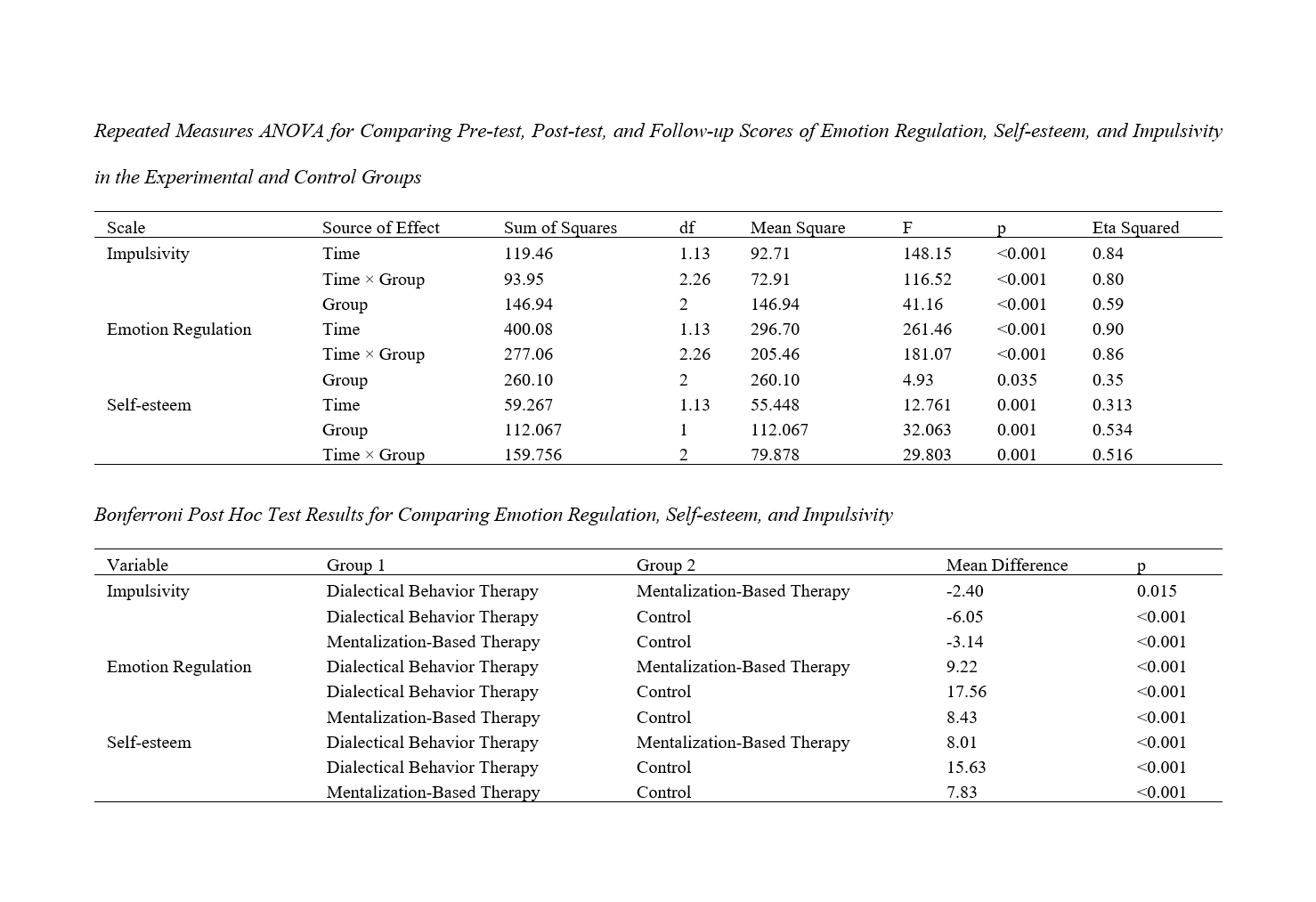Comparison of the Effectiveness of Mentalization-Based Therapy and Dialectical Behavior Therapy on Emotion Regulation, Impulsivity, and Self-Esteem in Individuals with Borderline Personality Disorder
Keywords:
Mentalization, Dialectical Behavior Therapy, Emotion Regulation, Impulsivity, Self-Esteem, Borderline Personality DisorderAbstract
Objective: Borderline Personality Disorder (BPD) begins in adolescence or early adulthood and can lead to difficulties in conflict resolution and emotion regulation. The aim of this study was to compare the effectiveness of Mentalization-Based Therapy (MBT) and Dialectical Behavior Therapy (DBT) on emotion regulation, impulsivity, and self-esteem in individuals with Borderline Personality Disorder.
Methods and Materials: This study employed an applied research design and a quasi-experimental pretest-posttest and follow-up design with a control group. The statistical population included all individuals with Borderline Personality Disorder in Tehran. The sample comprised 45 individuals with Borderline Personality Disorder selected through convenience sampling. Data were collected using the Jackson and Claridge Borderline Personality Inventory (1991), the Garnefski et al. Emotion Regulation Questionnaire (2001), the Dickman Impulsivity Inventory (1990), and the Rosenberg Self-Esteem Scale (1965). Data were analyzed using repeated measures ANOVA and SPSS-26 software.
Findings: The results indicated a significant difference between the two therapy groups (MBT and DBT) on emotion regulation, impulsivity, and self-esteem in individuals with Borderline Personality Disorder. Dialectical Behavior Therapy had a greater impact on improving emotion regulation, impulsivity, and self-esteem in individuals with Borderline Personality Disorder (P<0.001).
Conclusion: It can be concluded that both Dialectical Behavior Therapy and Mentalization-Based Therapy can be effective intervention methods for improving emotion regulation, impulsivity, and self-esteem in individuals with Borderline Personality Disorder.
Downloads

Downloads
Additional Files
Published
Submitted
Revised
Accepted
Issue
Section
License

This work is licensed under a Creative Commons Attribution-NonCommercial 4.0 International License.








